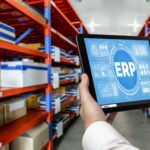VAT returns, tax registration numbers, emirate-specific regulations – it’s a lot to keep track of when you do business in the UAE. The question most business owners here ask is: can one system actually handle all of this without needing a bunch of customizations?
Short answer? Yes. ERPNext UAE implementations are built to handle the specific stuff that businesses here deal with every day.
ERPNext Comes with UAE-Specific Features
ERPNext in Dubai and across the Emirates isn’t just a generic software adapted for this region — it comes with UAE-specific features built right into the system.
The system understands that businesses here need to:
- Track Tax Registration Numbers (TRN) properly
- Handle VAT at different rates (5%, zero-rated, exempt)
- Deal with excise taxes where applicable
- Generate invoices that meet FTA requirements
- File VAT 201 returns without pulling your hair out
These aren’t add-ons or workarounds. They’re standard features that come with the system.
VAT Compliance That Actually Makes Sense
Let’s talk about VAT because that’s probably your biggest headache. ERPNext UAE handles this smoothly once you’ve got it set up.
Setting up VAT/Excise Tax is straightforward:
- You add your company’s TRN in the company settings
- Add your customers’ and suppliers’ TRNs in their records
- Set up tax codes for your products (5%, zero-rated, exempt, whatever applies)
- The system has default templates for standard VAT scenarios
Once that’s done, the system does the heavy lifting. When you create an invoice, it automatically:
- Pulls the correct tax rate based on your product and customer
- Shows both TRNs (yours and your customer’s) on the invoice
- Calculates VAT correctly
- Keeps everything organized for reporting
The best part? You get print formats that are actually compliant with FTA requirements. There’s a simplified version and a detailed version, depending on what you need.
The VAT 201 Report Without the Drama
Filing your VAT return used to mean spending hours pulling data from different places, double-checking calculations, and hoping you got everything right.
With ERPNext implementation done properly, the VAT 201 report is just there. You open it, select your date range, and it shows you everything you need:
- Standard rated supplies
- Zero-rated supplies
- Exempt supplies
- Recoverable VAT
- All the boxes that go on your FTA filing
The system calculates it all based on your actual transactions. No manual adding, no Excel formulas that might be wrong, no guessing.
One thing to watch out for – you need to make sure your emirate selection is correct in your company address and invoices. The system auto-fills this, but it’s editable if you need to change it. This matters because VAT rules can vary slightly depending on which emirate you’re in.
Handle Different Types of Items and Transactions with ERPNext UAE
Not everything you sell or buy gets taxed the same way, right? Some items are standard 5% VAT, some are zero-rated (like exports or international transport), and some are completely exempt.
ERPNext in UAE lets you mark items correctly:
- Tick “Is Zero Rated” for items that qualify
- Tick “Is Exempt” for tax-exempt items
- Regular items get standard VAT treatment
When you use these items in invoices, the system knows exactly how to handle them. Your customer sees the right tax treatment, and your VAT report categorizes everything correctly.
Reverse Charge and Special Scenarios
In purchase invoices, you can:
- Mark if reverse charge is applicable
- Specify what percentage is recoverable
- Enter the amount that was refunded to tourists (if you’re in retail)
So if you’re importing services from outside the UAE and need to account for reverse charge VAT, it creates the right GL entries without you having to think about it.
Multi-Currency and Regional Business Needs
You’re probably invoicing some customers in AED, paying suppliers in USD, maybe dealing with EUR or GBP too.
ERPNext UAE handles this naturally. You set up your exchange rates, and it converts everything automatically while keeping proper records. Your VAT still gets calculated in AED (as required by FTA), even if the original transaction was in another currency.
This is huge for trading companies in Jebel Ali Free Zone, businesses in DMCC, or really anyone dealing with international suppliers and customers.
Flexibility for Your Specific Business Setup
Every business is a bit different. An ERPNext implementation partner in UAE can help with customization where needed. The system is flexible enough that you can:
- Add custom fields without breaking anything
- Create custom reports that pull exactly what you need
- Set up workflows that match how your business actually operates
Most businesses find that the standard features cover 90% of what they need. The customization is there when you need it, but you’re not forced to customize everything just to get started.
Getting Help When You Need It
Look, implementing any new system has a learning curve. The difference with ERPNext in Dubai and the wider UAE is that there are people here who actually understand both the system and local business requirements.
You’re not calling a support center in another country trying to explain UAE VAT rules to someone who’s never heard of an FTA return. Local implementation partners know the regulations, know the common scenarios businesses face, and can help you set things up right.
Frequently Asked Questions (FAQs)
ERPNext UAE comes with built-in features that handle all VAT and FTA compliance requirements, including TRN tracking, correct VAT rate application (5%, zero-rated, exempt), compliant invoice formats, and automated VAT 201 reports. This ensures businesses can generate tax-ready data without manual calculations or external spreadsheets.
Yes. ERPNext UAE allows you to set your company’s emirate in the address and invoice details (important for emirate-specific VAT rules). It also supports multi-currency operations, converting transactions automatically while ensuring VAT is always calculated and reported in AED, as required by the FTA.
ERPNext lets you easily mark items as “zero-rated” or “exempt,” and the system applies the correct tax treatment automatically in invoices and reports. For purchases involving reverse charge (like imported services), ERPNext creates the appropriate accounting entries without manual intervention.
Businesses in Dubai and across the UAE can work with local ERPNext implementation partners who understand both the software and UAE-specific tax regulations. These experts help with setup, customization, and compliance, ensuring the system matches your unique business workflows.








